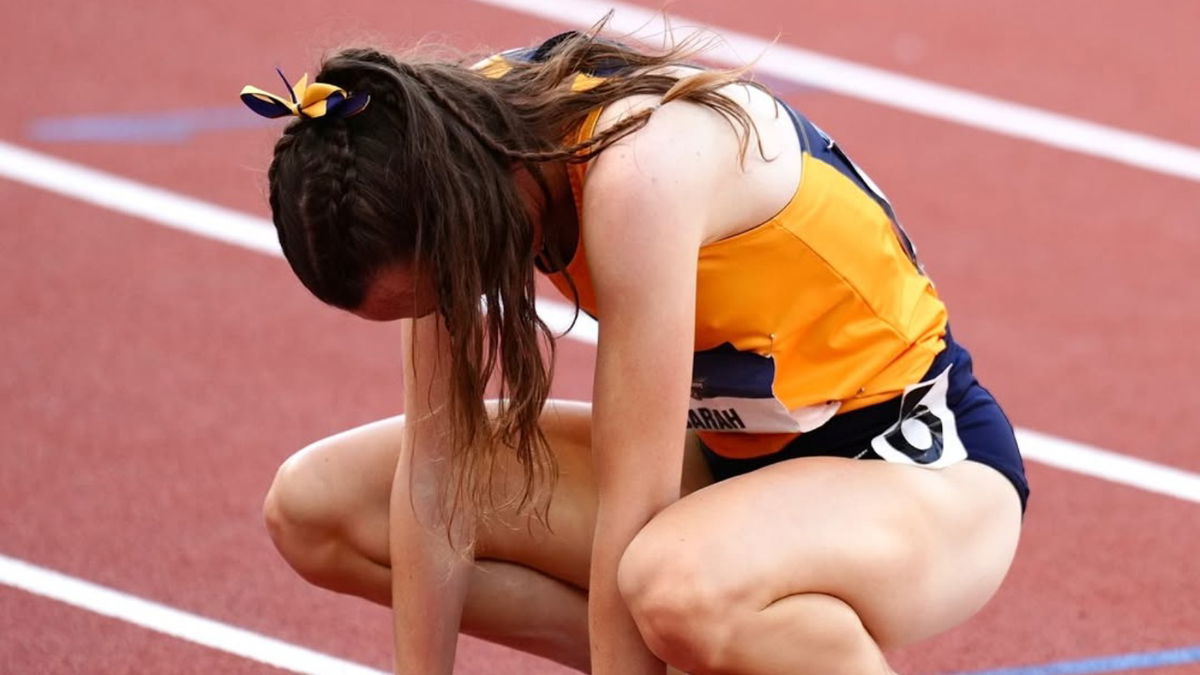
Imago
Sarah Tait (Image Credits: Instagram)

Imago
Sarah Tait (Image Credits: Instagram)
A 24-year-old competitor arrived in Tokyo with momentum on her side, the sort of form that suggested her first appearance at the World Championships might serve as the beginning of a long international career. She had just set a national record, had secured her place on a senior Great Britain and Northern Ireland squad, and was preparing for the test of facing the best athletes on a global stage. Instead, the drama of her debut unfolded in a far different way than anticipated. Cue Sarah Tait’s entry.
Watch What’s Trending Now!
Sarah Tait is a steeplechase runner whose path to Japan had been shaped by years of steady progress through the Scottish system. Only weeks earlier, she had lowered her personal best to 9:27.80 in the 3000m steeplechase at the NCAA final in Eugene, Oregon, placing fourth in a field of established names. The time was a new Scottish record, breaking the 9:35.82 mark set by Eilish McColgan back in 2013. Tait later acknowledged her mentor’s encouragement, remarking that she was “very lucky to be guided by three incredible coaches” and thankful for the support she had received through McColgan’s Giving Back to Track initiative. Her rapid ascent positioned her as one of Scotland’s most promising athletes, bound for Madrid after her first senior call-up to the European Team Championships.
That ascent was abruptly halted on September 15, when her World Championships debut ended in visible anguish. Track enthusiast @IanTnf wrote on X, “Sarah Tait injured on the water jump and DNF.” Another pundit from inside the stadium added, “She was screaming and sobbing. Did you see anything on the broadcast?” Reports indicated that she landed awkwardly, clutched her ankle, and was taken away in a wheelchair. One witness noted, “Yep – it looked like a bad landing in the water jump to me.” A short clip shared by @mika_gets_it showed Tait seated on the track as medical staff worked to provide assistance, a sudden and painful turn in what had promised to be a defining competition.
ADVERTISEMENT
Sarah Tait injured on the water jump and DNF. 😢
— Ian Sharpes (@IanTnf) September 15, 2025
The fall came only months after she had completed a breakthrough campaign. Beyond her NCAA achievement, she had been named to her first senior British Athletics squad for the European Team Championships in Madrid in June, where she finished second to secure her Tokyo place. The Lasswade AC athlete had been coached by Linda and Kirk Smith since her formative years, later refining her training under Sean Cleary at West Virginia University. She also carried the distinction of being the first athlete to benefit from McColgan’s program supporting emerging female runners, with the pair exchanging messages online after Tait broke the long-standing record.
Tait entered Tokyo with optimism, looking to McColgan for advice on navigating the unfamiliar atmosphere of a World Championships. Instead, her competition ended before she could reach the finish line, leaving teammates, coaches, and supporters with only questions about the extent of her injury. The images from the track, an athlete clutching her ankle and sobbing, stood in stark contrast to the celebratory scenes of only weeks earlier. Tait even turned to Eilish McColgan’s mentorship as she prepared to face her first World Championships.
ADVERTISEMENT
Sarah Tait sought help from Eilish McColgan for World Championships debut
Sarah Tait reached the World Championships in Tokyo with her best season behind her, yet she did not step into the arena without guidance. Having broken a collegiate record once held by Eilish McColgan earlier in the year, Tait had long looked toward the more established Scot as a figure of counsel. As the competition approached, she leaned on McColgan for perspective, knowing that her mentor had already navigated the uncertainty of first appearances at major championships.
ADVERTISEMENT
The relationship between the two had developed steadily, beginning when Tait became the first athlete supported by McColgan’s “Giving Back to Track” initiative. In Tokyo, the connection took on fresh significance. “Eilish is great. We have that relationship now where I message her and annoy her about everything,” Tait admitted, noting that her mentor’s encouragement had steadied her preparation. McColgan’s advice was practical rather than prescriptive, guiding Tait to absorb the occasion fully rather than fixating on outcomes. “She has told me to soak up the experience and that is what I’m trying my best to do,” Tait explained, presenting herself less as a contender for immediate medals than as an athlete determined to learn for future campaigns.
Top Stories
Patrick Mahomes’ Dad Faces 10-Year Prison Sentence After Chiefs QB’s Father Reportedly Violated Probation Terms

Prayers Pour In From Jordan Love & Co. as Cowboys Star Mourns Tragic Personal Loss

Justin Jefferson Makes Final Decision on Joining Buffalo Bills After Further Damaging J.J. McCarthy Relationship

Matthew Stafford Makes Final Decision on Retirement After Narrowly Beating Drake Maye For NFL MVP

Multiple PGA Tour Pros Stopped from Playing as WM Phoenix Open Round Is Canceled Over Recurring Problem

PGA Tour Split Into Two as Scottie Scheffler Confirms Stance on Patrick Reed’s Return

For Tait, McColgan’s mentorship was serving as direction at a moment when expectations could have been overwhelming. The younger Scot acknowledged that she was not measuring her worth solely through placings but through her capacity to treat the World Championships as part of a longer process. “She’s a great mentor to have and she’s definitely done it all before,” she remarked, leaving no doubt about the importance of that guidance. In framing her ambitions in such terms, Tait’s journey at the Worlds reflected more than a debut. But destiny planned it differently for her. The shock of her collapse mid-race has been felt across the athletics community, halting what had seemed a steady climb toward international recognition.
ADVERTISEMENT
ADVERTISEMENT
ADVERTISEMENT